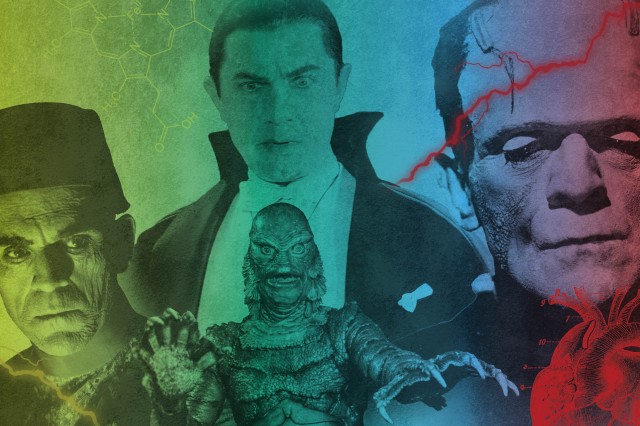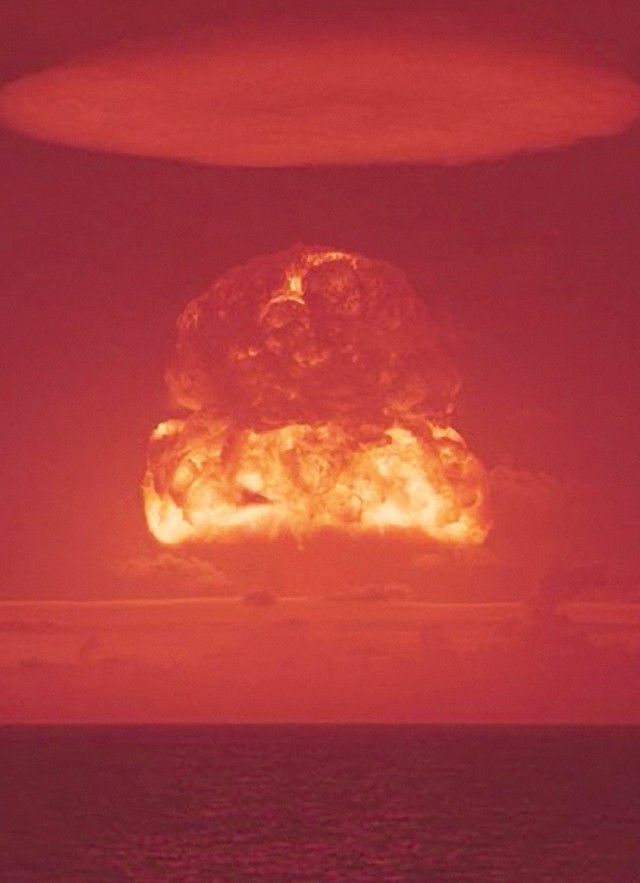
First Fridays 2023: Fandoms & Fantasy
This season, we focus on how nature and science influence the creation of our favorite imagined worlds. Read about how pterosaurs compare to dragons below, and check out the First Fridays page.
On March 1, 1954, the world changed forever. Hell on Earth was released in the Atoll Islands. A fireball, seven miles wide, lit up the sky. The blast was seen as far as 250 miles away. This was Castle Bravo, the world’s largest explosion from the test of a hydrogen bomb. Radioactive fallout spread across the sea, contaminating everything in its path. One hundred miles from the explosion a small fishing boat was trawling for tuna unaware of the dangerous cloud coming their way. A decade after the horrific bombing of Hiroshima and Nagasaki, this new test shook the Japanese psyche. The Japanese press called it “the second atomic bombing of mankind.”
A few months later, Godzilla splashed onto the silver screen. The first few minutes of the film recreates this scene with a nuclear blast destroying a fishing boat. Godzilla arose out of the fear of radiation. In the film, the monster, modeled after both a T. rex and gorilla, loses control, unaware of what he’s destroying. It’s skin is rippled and torn, a reference to radiation burns. The director of the film called Godzilla, “A Living Atom Bomb.”
Previously displayed at NHM, the objects from Bikini Atoll below offer a window into the world before the testing began. The objects are not radioactive (we checked!) They came to our collections as part of a donation remembering the removal of the indigenous populations of Bikini Atoll. While many people were displaced from their homes in preparation for the tests, others who still lived on nearby islands faced fallout from the 23 nuclear tests, which disrupted their food supply and forced them to flee the contamination.
Different Destroyers
The movie American audiences saw in 1956—Godzilla, King of the Monsters!—was very different than Gojira, the original released in Japan. Footage had been cut and its antinuclear message diluted. Many people in the U.S. first saw the devastating effects of nuclear weapons on screen in a monster movie.
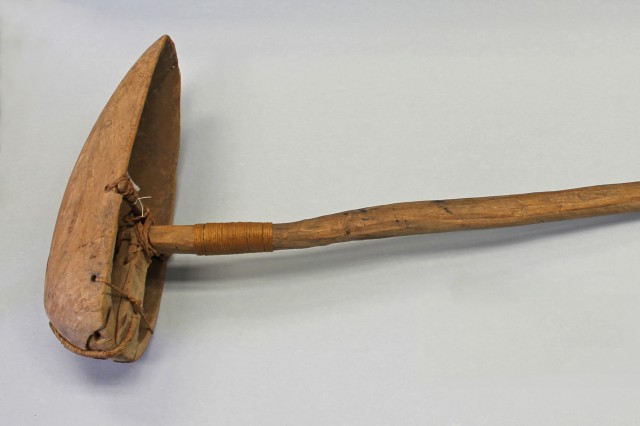
Canoe Bailer
This is used to scoop water out of a canoe.
Bikini Atoll, Marshall Islands c. 1945
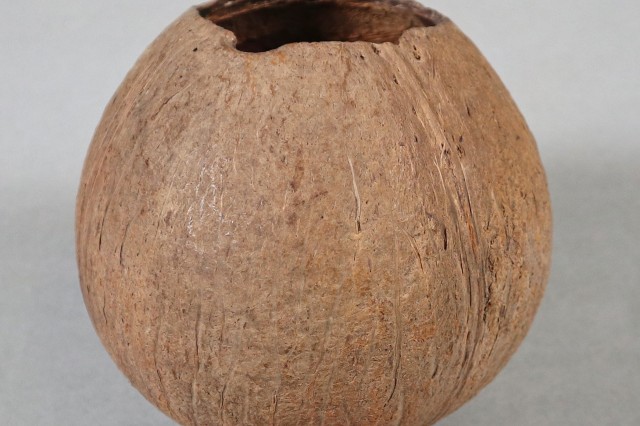
Coconut Bowl/Cup
A coconut shell used as a cup or bowl.
Rongerik Atoll, Marshall Islands c. 1945
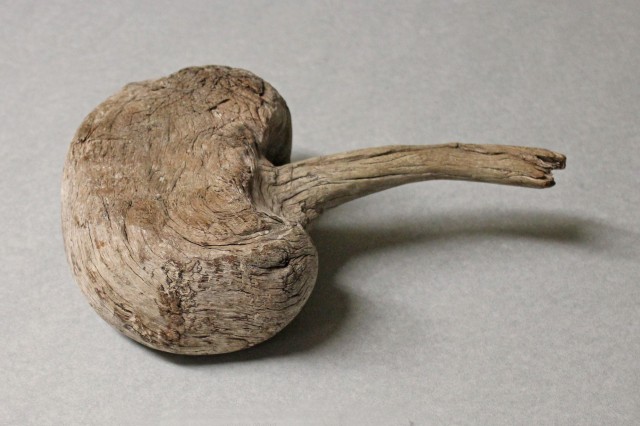
Some knots in trees are naturally more dense and have more compressive strength so with a handle, they can make an ideal mallet or hammer.
Rongerik Atoll, Marshall Islands c. 1945
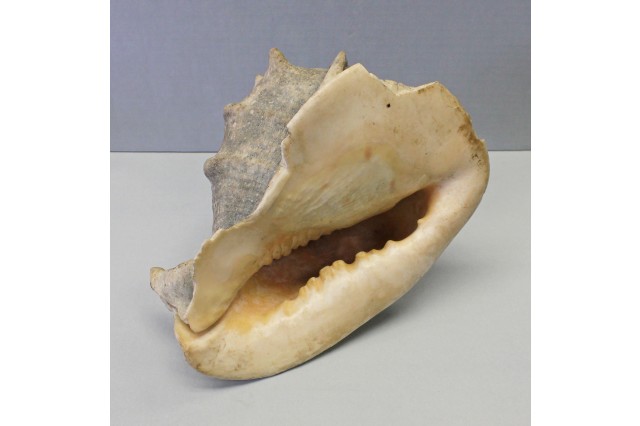
Conch Shell
Used as a horn.
Rongerik Atoll (where the natives of Bikini were moved to), Marshall Islands c. 1945
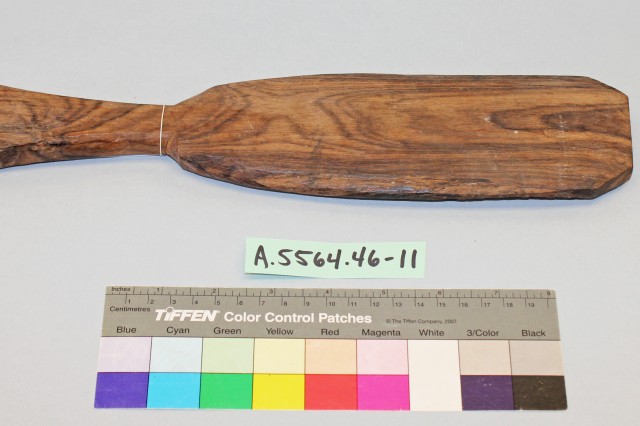
Beater
Used to beat the pandanus fiber used for baskets, roofs, fans, etc. and for beating bark to make bark cloth.
Bikini Atoll, Marshall Islands c. 1945
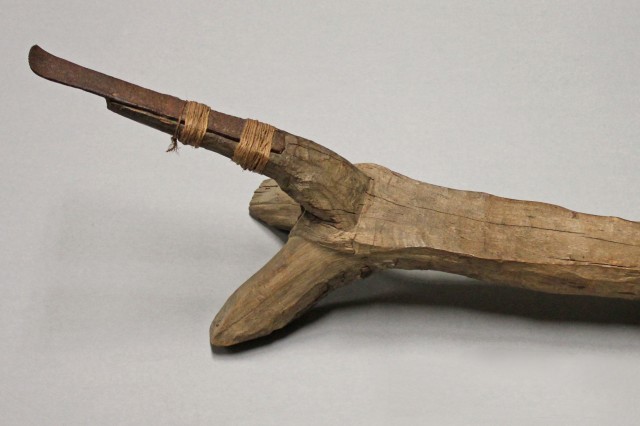
Coconut Grater
This has a metal attachment with ridges at one end for grating coconut.
Bikini Atoll, Marshall Islands c. 1945
1 of 1
Canoe Bailer
This is used to scoop water out of a canoe.
Bikini Atoll, Marshall Islands c. 1945
Coconut Bowl/Cup
A coconut shell used as a cup or bowl.
Rongerik Atoll, Marshall Islands c. 1945
Some knots in trees are naturally more dense and have more compressive strength so with a handle, they can make an ideal mallet or hammer.
Rongerik Atoll, Marshall Islands c. 1945
Conch Shell
Used as a horn.
Rongerik Atoll (where the natives of Bikini were moved to), Marshall Islands c. 1945
Beater
Used to beat the pandanus fiber used for baskets, roofs, fans, etc. and for beating bark to make bark cloth.
Bikini Atoll, Marshall Islands c. 1945
Coconut Grater
This has a metal attachment with ridges at one end for grating coconut.
Bikini Atoll, Marshall Islands c. 1945
